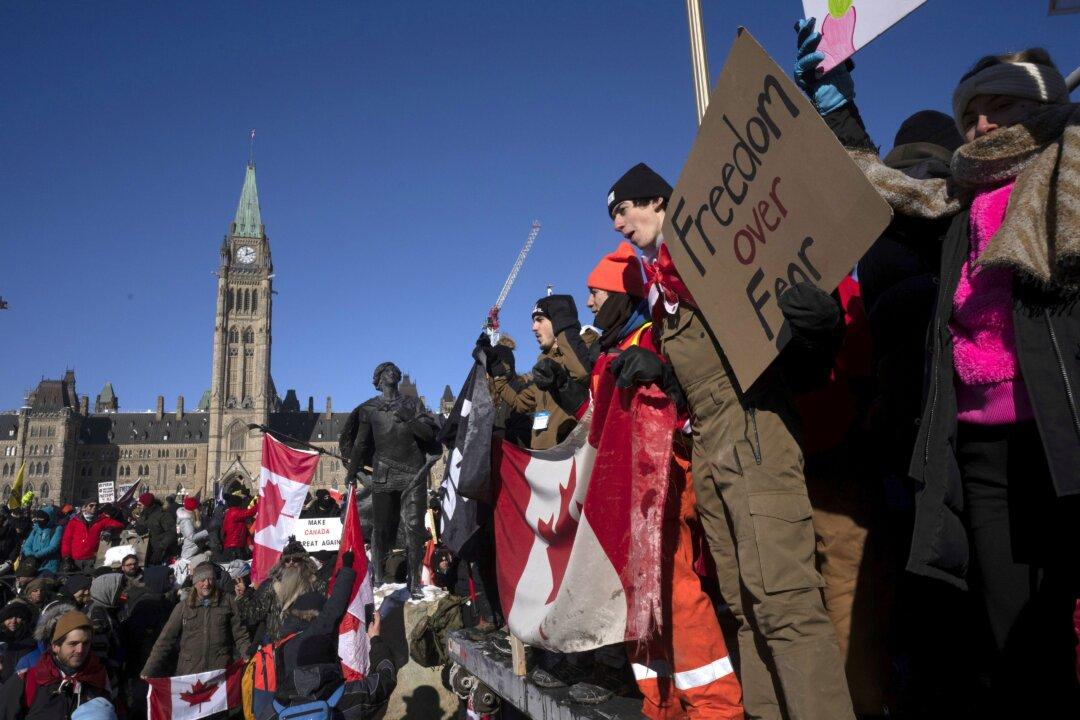A lawyer for the Canadian Constitution Foundation argued Tuesday in Federal Court that the Liberal government needed more supporting information to invoke the Emergencies Act in response to the Freedom Convoy protests last winter.
“Cabinet’s determination that the protests and blockades were threats to the security of Canada was unreasonable, because it had insufficient evidence to reach that conclusion,” Sujit Choudhrsaid, a lawyer with the Canadian Constitution Foundation, said on the second day of a Federal Court review.





